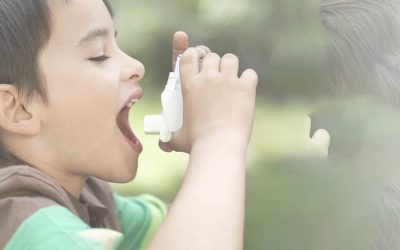As a parent, you’ve probably heard of anaphylaxis and severe allergies, but you may not understand what that means. Anaphylaxis is a multi-system response to an allergen, which means it involves several of the connected processes of the body. Anaphylaxis is an allergic reaction that is far more than just sneezing or hives and can be deadly.
Many different things can cause allergies and anaphylaxis, but the most common severe allergies involve foods, medicines, latex, and insect stings.
Anaphylaxis is an allergic reaction that is far more than just sneezing or hives and can be deadly.
An allergic reaction usually takes place within minutes of exposure, though it can be delayed by a few hours. Any allergic reaction can involve any of the symptoms below, though true anaphylaxis involves two or more categories:
Severe allergy symptoms
Skin: hives, swelling, warmth, redness, heat, itch
Respiratory system: wheezing, coughing, difficulty breathing, throat tightness, runny nose, trouble swallowing
Gastrointestinal: nausea, vomiting, diarrhea, abdominal pain
Cardiovascular: pallor (white skin color), cyanosis (blue skin color), dizziness, passing out, weak pulse, low blood pressure
Other: headache, anxiety, feelings of impending doom
What to do in case of severe allergic reaction or anaphylaxis:
If there are only hives, and the child is well, has not obviously consumed or come in contact a known allergen, and has no other symptoms, it may be reasonable to seek the counsel of a physician with less urgency.
If two or more symptoms present, please call 911. Your child may need a life saving dose of epinephrine (an injection from an ‘Epipen’).
Some parents of children with known severe allergies have asked if they can give Benadryl and wait. The answer is: no. Anaphylaxis reactions can quickly kill a child.
CALL 911 immediately if you suspect anaphylaxis!
If your child has a suspected allergy:
See your physician and get a referral to an allergist if you see any signs of allergy. The allergist can determine what your child is allergic to. Sometimes there are more allergies than parents are aware of, which parents may not know unless their kids are tested.
Best medicine for allergies
All children with known allergies should have an Epipen (or newer version called Allerject) with them 100% of the time. Keeping it in the locker or knapsack isn’t good enough! Every second counts in anaphylaxis! Benadryl can be given for a minor allergic reaction that affects just the skin.
I also recommend MediAlert bracelets. If your child is unable to breathe and tell others he needs the Epipen, the bracelet will speak volumes and may be life saving.
Remember, if there are other symptoms besides the skin, call 911!
If you suspect your child may have allergies, please speak to your physician.
To read more about allergic reactions to food, nut allergy symptoms, bee sting reactions, or allergic reaction to antibiotics, click here.
Dina is a wife, mother of 4, and adrenaline junky. She loves to share children’s health information from her professional and personal experience. More About Dr Dina.










